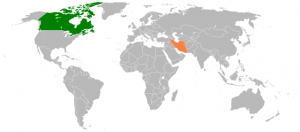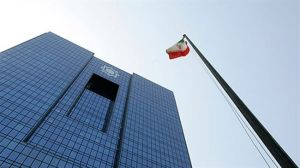Flat 304, NO 8, Takhti SQ, Fereshte, Valiasr, Tehran, Iran
+98 21-22233389
+98 21-26459281
 Speaking at the first meeting of the private-sector/government dialogue council held on 17 April 2017 at Iran’s Chamber of Commerce, Industries, Mines and Agriculture (ICCIMA), Industry Minister Mr. Mohammad Reza Nematzadeh said that the development of requirements for the establishment of strong export companies is a top priority. The minister said not all the country’s objectives in the export sector were fulfilled in the previous year because of a lack of access to specialized export tools. However, Mr. Nematzadeh stressed that free-trade zones have proven a great asset to support the country’s economic boom, facilitate production and exports. ICCIMA Head Mr. Gholamhossein Shafei said main priorities of the dialogue council needed to be identified for the year ahead suggesting that prime concerns should include improved performance in privatization, paving the path for transferring unfinished construction projects to the private sector, removing barriers to foreign investment and facilitate business atmosphere.
Speaking at the first meeting of the private-sector/government dialogue council held on 17 April 2017 at Iran’s Chamber of Commerce, Industries, Mines and Agriculture (ICCIMA), Industry Minister Mr. Mohammad Reza Nematzadeh said that the development of requirements for the establishment of strong export companies is a top priority. The minister said not all the country’s objectives in the export sector were fulfilled in the previous year because of a lack of access to specialized export tools. However, Mr. Nematzadeh stressed that free-trade zones have proven a great asset to support the country’s economic boom, facilitate production and exports. ICCIMA Head Mr. Gholamhossein Shafei said main priorities of the dialogue council needed to be identified for the year ahead suggesting that prime concerns should include improved performance in privatization, paving the path for transferring unfinished construction projects to the private sector, removing barriers to foreign investment and facilitate business atmosphere. Aiming to support domestic garment industry and prevent smuggling, Iran’s customs administration has introduced measures to systemize import procedures of foreign clothing brands. Customs post-clearance audit will now be carried out for several foreign clothing brands. refers to controls undertaken after the clearance of the goods and is designed to verify the accuracy of the data declared and confirm the proper implementation of customs and other legislation, namely the precise payment of duties, taxes and other charges. As per another measure, related authorities will prevent the installation of billboards advertising clothing trademarks or brand-names that do not have a license holder retailer in Iran. Importers are also required to record the Global Trade Item Number for branded items of clothing and their official prices as set by the parent company. According to the Headquarters to Combat Smuggling of Goods and Foreign Exchange, clothes held the largest share of all the commodities smuggled into Iran during the fiscal March 2015-16 – accounting for US$ 2.36 billion or 41% of all smuggled goods.
Aiming to support domestic garment industry and prevent smuggling, Iran’s customs administration has introduced measures to systemize import procedures of foreign clothing brands. Customs post-clearance audit will now be carried out for several foreign clothing brands. refers to controls undertaken after the clearance of the goods and is designed to verify the accuracy of the data declared and confirm the proper implementation of customs and other legislation, namely the precise payment of duties, taxes and other charges. As per another measure, related authorities will prevent the installation of billboards advertising clothing trademarks or brand-names that do not have a license holder retailer in Iran. Importers are also required to record the Global Trade Item Number for branded items of clothing and their official prices as set by the parent company. According to the Headquarters to Combat Smuggling of Goods and Foreign Exchange, clothes held the largest share of all the commodities smuggled into Iran during the fiscal March 2015-16 – accounting for US$ 2.36 billion or 41% of all smuggled goods. Diplomatic ties have not been re-established between Ottawa and Tehran, but that does not prevent some Canadian companies from entering the Iranian market. Since the lifting of some of the economic sanctions by Canada in February 2016, 30 export permits have been granted to Canadian companies to do business in Iran. However, business interest for Iran is much stronger. Each week, five to seven applications are reportedly made to the federal government by Canadian entrepreneurs looking for information to break into the Iranian market. These companies are active the oil and gas, transportation, pharmacology, construction, aerospace and agriculture sectors. The Canadian Embassy in Tehran has stayed closed since 2012. The Trudeau government is committed to re-establishing diplomatic ties, but no deadline has been set by Ottawa. The Canadian Chamber of Commerce hopes that by the time an embassy reopens, Ottawa will have representatives on the ground to help develop business relations.
Diplomatic ties have not been re-established between Ottawa and Tehran, but that does not prevent some Canadian companies from entering the Iranian market. Since the lifting of some of the economic sanctions by Canada in February 2016, 30 export permits have been granted to Canadian companies to do business in Iran. However, business interest for Iran is much stronger. Each week, five to seven applications are reportedly made to the federal government by Canadian entrepreneurs looking for information to break into the Iranian market. These companies are active the oil and gas, transportation, pharmacology, construction, aerospace and agriculture sectors. The Canadian Embassy in Tehran has stayed closed since 2012. The Trudeau government is committed to re-establishing diplomatic ties, but no deadline has been set by Ottawa. The Canadian Chamber of Commerce hopes that by the time an embassy reopens, Ottawa will have representatives on the ground to help develop business relations. The Central Bank of Iran (CBI) is planning to allow authorized exchange shops to use international cards in daily operations [instead of cash], CBI Governor Mr. Valiollah Seif said on 17 April 2017, adding that such operations will be conducted under the central bank’s close supervision. The central bank is working to develop the infrastructure needed for connecting Iran’s payment network to international networks.
The Central Bank of Iran (CBI) is planning to allow authorized exchange shops to use international cards in daily operations [instead of cash], CBI Governor Mr. Valiollah Seif said on 17 April 2017, adding that such operations will be conducted under the central bank’s close supervision. The central bank is working to develop the infrastructure needed for connecting Iran’s payment network to international networks.